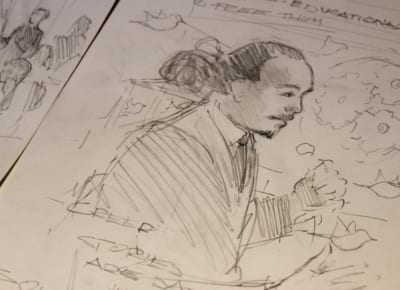Earlier this year, EdNC’s Robert Kinlaw created a short documentary called “We Drive It” — a look inside the North Phillips School of Innovation, a micro-school in Edgecombe County. Explaining the unique creation of the school, Kinlaw wrote:
The team conducted empathy interviews with students and parents, asking them what they wanted and needed in a school. Many students said the material they learned in classes wasn’t applicable or useful in real life. They also wanted more social-emotional connections in school, expressing a desire to be more open with their teachers and feel free to talk about things that were happening outside of the classroom.
What emerged from those conversations was a portrait of a student who was three-dimensional — a student with needs, wants, hopes, and dreams; a student with profound experiences, good and bad; and a system that they couldn’t relate to. Traditional school just felt too far removed from their own realities. Parents said they wanted more opportunities — and better opportunities — for their kids to prosper.
From the interviews and listening sessions, the team, in collaboration with the community, set a baseline goal that ultimately drives all their innovative work around educating children in schools. That goal is this: By age 25, every individual should be pursuing something they’re passionate about, aware of their agency in the world, and using their abilities to create positive change.
The film about the school aired in the afternoon at Bridge, followed by a discussion with school leaders and students. You can watch the 15-minute documentary in full, below.
“That was such a gift, I think for all of us,” said Jenny O’Meara, principal at Phillips Middle School, of the documentary before students took the stage to share their experiences as part of the panel on the School of Innovation. The panel discussion gave students the opportunity to explain in person what it was about the school that clicked for them.
“Before I came to the microschool my seventh grade year, I was on the verge of being sent to an alternative school ’cause I was bad,” Darquavious Lancaster said to audience chuckles. “When I came to the microschool, I don’t know what happened, but I felt more comfortable there, and like the learning was so different but it was easy at the same time. So it was easier for me to connect with everybody, like the students and the teachers, and ever since then I just liked being there.”
“When I got the application to come to the school and I got there, I was like, ‘This is a school for me!'” student Sabrina Jordan said. “Because they actually sit down and take time with you one-on-one. Whatever you need, they’re there. It’s caring and loving. It’s all what a teen needs in school, and it’s just wonderful there.”
See the full conversation with School of Innovation students below:


